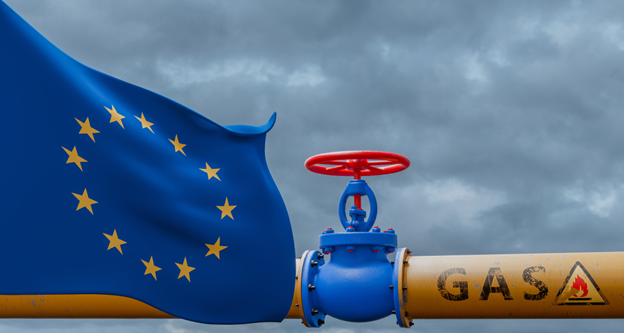4 Jun 2023
Is Africa the Solution to the EU’s Energy Crisis?
A global energy crisis of unparalleled scope and complexity is currently roiling the planet. Although the crisis is most acute in Europe, it is having a significant impact on markets, regulations, and economies all over the world. Europe was the region most impacted by the crisis since the Ukraine conflict where Russia’s supplies to Europe were disrupted. The nation took action to mitigate the effects of the crisis as a result of this interruption, one of which was the urge to find new sources of energy. The African continent is rich in energy resources, but the question that remains is whether it will be able to replace Russia in meeting Europe's energy needs.
8 May 2023
Drums of War: Clean Energy Conflict on Both Sides of the Atlantic
The relationship between the United States and the European Union serves as a model for economic integration and collaboration in trade and investment between two non-regional parties. Both sides are considered each other's significant general trading partners when it comes to commercial relations for goods and services. Conversely, China surpassed the United States as Europe's top trading partner for goods in 2020. In 2022, trade in goods between the two sides exceeded $900 billion, while trade in services exceeded $500 billion.
Despite its strength, this relationship has its share of trade disputes, primarily fuelled by the growth of bilateral trade and each side's desire to further enhance its surpluses by entering the other's market. These disputes sometimes even reached the World Trade Organisation (WTO), most recently in 2018 when the US imposed 25% and 10% tariffs on imports of steel and aluminium from the EU based on national security grounds, to which the EU replied in kind.
However, the nearly 17-year-old dispute for control of the world's civil aviation industry between the two giant companies, American Boeing and European Airbus, was the most intense ever. Each side, "the United States and the European Union," made an effort to provide government aid to its company against the other. As the dispute escalated, both sides imposed retaliatory tariffs on a portion of each other's imports, which by 2021 totalled $11.5 billion. Eventually, in light of their disagreement with China, the two sides agreed to a trade truce, which stopped the dispute.
With every dispute between the two sides, the world hangs its breath due to their significant impact on the international economy, the shift forced by such a conflict in supply chains and the potential global slowdown. The world has been concerned about a similar situation since US President Joe Biden successfully passed his Inflation Reduction Act of 2022 in August 2022, which heralded the beginning of a prolonged war on both sides of the Atlantic in a world already dominated by trade and military conflicts between the East and the West.
This article analyses the American Inflation Reduction Act and predicts how this Act will impact the global economy in light of the current unstable economic situation.
14 Feb 2023
New Gulf: Russo-Ukrainian War and Emergence of North Africa’s Energy Sector
The Russian-Ukrainian war created significant uncertainty in the world’s energy markets and disrupted trade relations between the second-largest energy exporter and the second-largest energy importer. This disruption strongly signals a shift in the global energy supply chains, as indicated in a previous analysis. In the short term, Europe is expected to turn to the Arab Gulf to fill the gap left by the lack of Russian energy products.
However, in the long term, Europe will need to find sources that are highly sustainable, affordable, and less harmful to the environment than oil. This is because petroleum usage is incompatible with the European Green Deal (EGD), which aims to achieve carbon neutrality for the entire European continent by 2050. Furthermore, the EGD seeks to reduce greenhouse gas emissions from the mainland by around 55% below 1990 levels by 2030, which is unattainable with continued oil usage.
As a result, Europe will turn to its neighbours, particularly those in North Africa, who possess a variety of energy sources that can help it achieves its objectives and guarantee energy sustainability. Thus, this article explores Europe’s energy requirements and assesses the potential of North Africa’s energy resources to meet these requirements.


